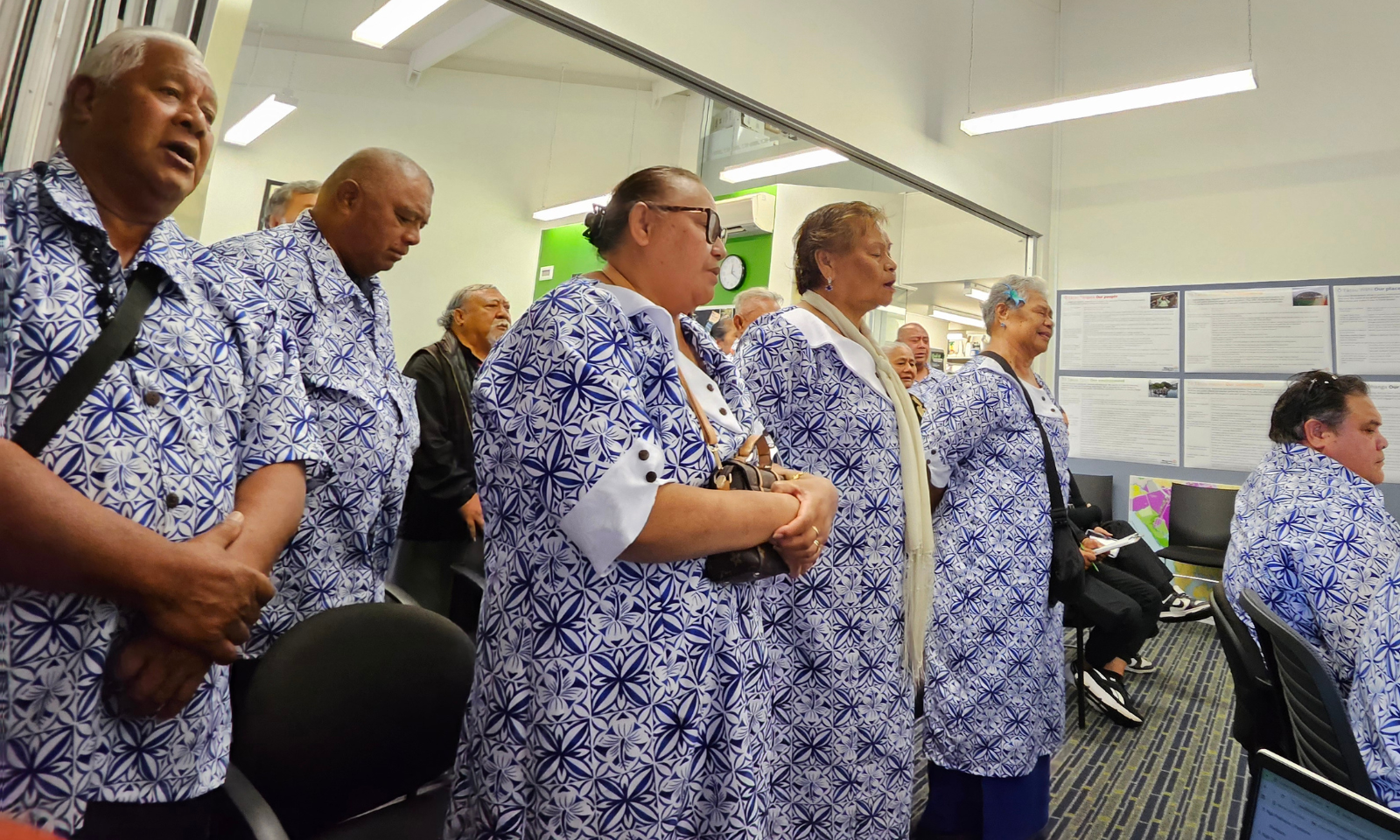
Proud teine Samoa Anna Siafolau is bridging the gap between Pacific and Japanese cultures through her personal project, @pacificislandersinjapan.
The Instagram page highlights the rich experiences of Pacific Islanders, creating a vibrant space for connection and cultural exchange in Japan.
Pacific Islanders in Japan, has garnered more than 1,000 followers on Instagram. And it all started following a conversation with one of Anna’s close friends. She brought up, “how nice it would be if islanders in Japan had a page where we could connect and see the lives of our fellow islanders in Japan.”

Originally from South Auckland, Anna moved to Japan three years ago where she resides in Saitama Prefecture, located north of Tokyo’s border, and works as an assistant language Teacher.
Her fascination with Japan began at a young age, primarily through her love of anime such as Sailor Moon and Naruto, but it wasn’t until she reached intermediate school that she developed a deep love for Japanese culture and language.
“My aunty gifted me one of her Japanese textbooks from university to study the language on my own, which really boosted my interest,” Anna says.
“Then when I got to high school, I took up Japanese as an optional class and I started to take the prospect of living in Japan more seriously.”

There are now more than 100 experiences from Pacific people living in Japan who have shared their story on the platform. One of Anna’s favourites is an interview they conducted with a woman from West Papua.
“It was such an honour for me to talk to someone from West Papua and be able to share her story with our followers,” Anna says.
“I believe many of our own Islanders aren’t familiar with the history behind West Papua or the people there.”
“My second favourite was one with a Tongan woman in New Zealand we did a while back – she shared her story of how she got a speeding ticket but then ended up getting a job teaching English at the police department.”

Anna shares the cultural differences between New Zealand and Japan. One of them is the people’s respect for public property.
“Japan is a lot cleaner, with a lot less litter (unless you’re in a big city) and less destruction and vandalism of public places i.e. bus stops and park benches,” Anna shares.
Another element is the food culture. Anna notes that while New Zealand places a strong emphasis on meat consumption—particularly red meat—Japan’s traditional cuisines incorporate red meat less frequently.
“There are also a lot less options available when it comes to certain foods, such as cereals, meats, and sweets. In New Zealand, you would have whole aisles dedicated to these foods, but in Japan, less than half an aisle is available at your general supermarket,” Anna says.

Anna also reveals that Samoa and Japan both place a strong emphasis on modesty and respect, especially towards our elders. However, the perception of tattoos diverges significantly between the two cultures. In Samoa, tattoos are a celebrated form of cultural expression, symbolising identity, heritage, and personal stories.
Whereas in Japan, tattoos often carry a stigma due to their association with the Yakuza, the Japanese organised crime syndicate. As a result, tattoos are generally viewed with suspicion and can be a barrier to social acceptance.
Like many experiences, moving abroad presents its own challenges. For Anna, adjusting to the language switch was sometimes overwhelming, but reflecting on her grandparents’ journey to New Zealand helped ease her feelings.
“I was experiencing the same barriers [my grandparents] faced,” Anna says.
“It made me feel all the more grateful for what they went through in order for my family to receive more opportunities than what would have been possible had they stayed in the motherland.”

Since living in Japan, Anna developed an intolerance to gluten which affected her dietary adjustments. This posed a significant challenge as her existing allergies to coconut and mango further limited her options.
“Can you imagine being a Samoan who’s allergic to coconut and mango?” she says.
But the heightened number of Pacific Islanders travelling to Japan in recent years raises the question: what is it about Japan that attracts our Pacific people?
Anna believes they are driven by an interest in Japanese anime or manga, or by recommendations from friends and family who have visited Japan before.
“I think the element of ‘otherness’ is a big selling point,” she says.

“Compared to other popular Asian travel destinations, like Thailand and the Philippines, which give off island vibes and feel like home, Japan doesn’t have that vibe at all.
It’s such a different vibe and society from what many of us are used to.”
The various experiences shared on her platform reveals the predominant reasons for Pacific Islanders travelling to Japan appears to be a combination of cultural fascination and opportunities for work.

One participant, Timothy Lafaele shared how a scholarship to play and study at Yamanashi Gakuin University granted him the opportunity to live in Japan for more than 10 years. His advice for Pacific Islanders looking to move abroad is to “make sure your visa is valid and don’t overstay.”
Other than sharing the experiences of Pacific Islanders in Japan, Anna also offers advice on how to navigate the Japanese way of living.
Unlike New Zealand, there are no general practitioners in Japan, which means you’ll need to find a clinic that specialises in your specific illness and go to them directly.
Most importantly, learning the basics of the language can go a long way.
“More doors open for you if you can communicate with the people here. You can learn more and in turn, teach more about your own background and culture.”













